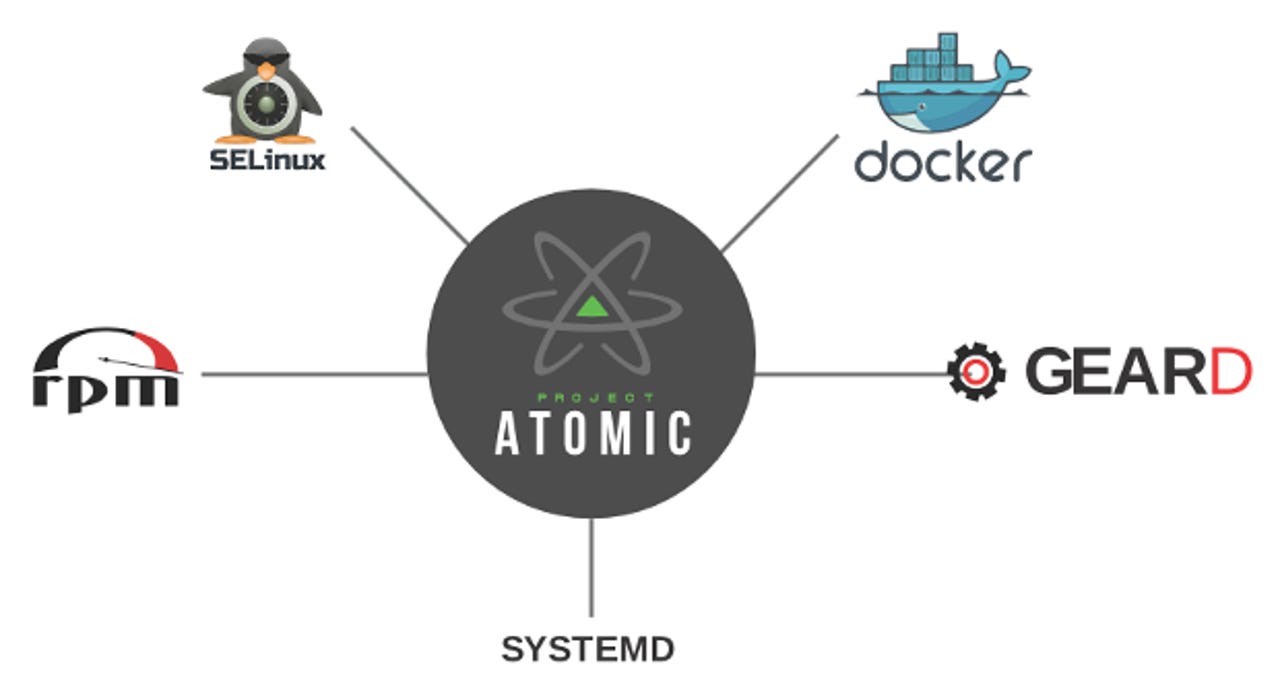Red Hat buys into Docker containers with Atomic Host

Not much over a year ago, few people knew about containers, and fewer still knew about Docker. Since then, the idea of building server and applications out of container-based micro-servers, has exploded in popularity. Red Hat has been watching this and now with Red Hat Enterprise Linux 7 Atomic Host (RHELAH) the company has its own operating system/container pairing to offer the business world.

Red Hat isn't the first Linux company to merge its flagship operating system with containers. CoreOS first took this approach in mid-2014. Canonical followed late in 2014 with Ubuntu Core. While Canonical is trying to use this approach to cover everything from the data center and cloud to the Internet of Things, Red Hat, like CoreOS, is focused on the server and cloud side.
As Jim Totton, Red Hat's Platforms Business Unit VP, said in a statement, "Twelve years ago, Red Hat delivered the first iteration of RHEL, taking a cutting edge software technology and molding it into the backbone that powers the enterprise, from the server to the cloud. Today, with the launch of RHELAH, we are doing the same for Linux containers, bridging innovative open technology with the stability and security required by the enterprise. More than just an addition to the Red Hat Enterprise Linux portfolio, RHELAH showcases the future of the enterprise application, a powerful, flexible application greater than the sum of its parts, and entirely fueled by the power of open innovation."
According to Red Hat, the company "is committed to offering enterprises a complete and integrated container-based infrastructure solution, combining container-based application packaging with robust, optimized infrastructure that will enable easy movement of Red Hat Enterprise Linux-certified applications across bare metal systems, virtual machines and private and public clouds. ... The release of RHELAH delivers on Red Hat's intent to make Linux containers a stable and reliable component of enterprise IT across the open hybrid cloud."
Why would you want to do this? Red Hat gives multiple reasons. These include:
Atomic updating and rollback through an image-like update mechanism. An atomic update can be downloaded and deployed in a single step, while the earlier version is retained, allowing for easy atomic rollback, if necessary.
Docker containers can be deployed and run as application containers.
Certification and support, along with a chain of trust for containers built using platform images provided by Red Hat, such as Red Hat Enterprise Linux 6 and 7 and certified containers from Red Hat's independent software vendor (ISV) partners.
Container orchestration at scale through Kubernetes. This will enable enterprises to create large-scale business applications from discrete services deployed in containers across clusters of RHELAH.
Stronger security by default through SELinux, cgroups and kernel namespaces. All of these make it easier to isolate containers from one another in a multi-container environment.
Support for super-privileged containers enables host management applications to access the host and other containers in a secure manner. This specialized container provides users with the means to install third party software and the atomic command inherent to Red Hat Enterprise Linux 7 Atomic Host makes creating and running super privileged containers dramatically easier.
Application portability across the open hybrid cloud by leveraging Red Hat's vast certified ecosystem, enabling secure, stable container deployments on physical hardware, on certified hypervisors including Red Hat Enterprise Virtualization, VMware and Microsoft Hyper-V, and on certified public cloud services like Amazon Web Services and Google Cloud Platform.
RHELAB is only available at this time to RHEL subscribers. The Project Atomic container code, though, is freely available for CentOS, Fedora, and RHEL.
Related Stories: